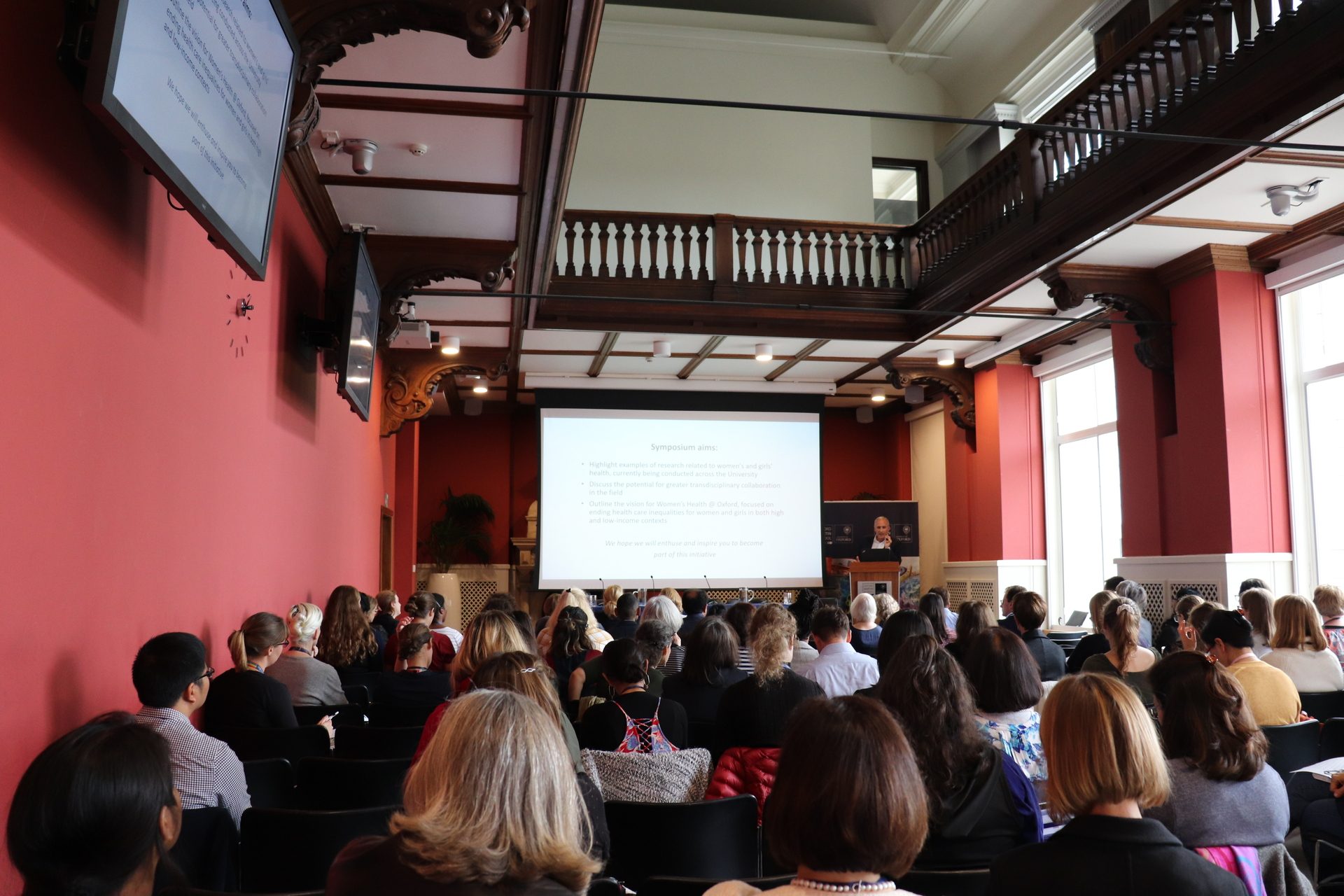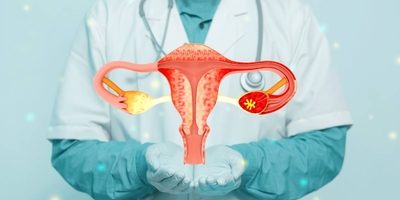
Women’s Health @ Oxford Symposium explores how greater collaboration can generate crucial improvements in women’s and girls’ health globally
On 4 October 2019, over 100 members of the University of Oxford gathered to highlight research being conducted into women’s health across all divisions, and explore the potential for a transdisciplinary approach to generate much-needed improvements in women’s and girls’ health and equality around the world.

Research into women’s health at the University of Oxford, graphically represented based on descriptive terms shared by attendees
Professors Robyn Norton (Principal Director of The George Institute for Global Heath) and Stephen Kennedy (Head of the Nuffield Department of Women’s and Reproductive Health) opened the Symposium at the Oxford Martin School by revisiting how a vision for ‘Women’s Health @ Oxford’ first came into being.
In 2016, the Institute and Department published Women’s Health: A New Global Agenda, a policy paper which was launched at the House of Lords. The paper called for global efforts around women’s maternal health to be broadened to look at the leading causes of death and disability in women across the life course, and for data to be routinely disaggregated by sex and analysed from a gender perspective to reveal sex differences in the occurrence and outcomes of disease and inform more targeted, effective interventions.
Professor Dame Valerie Beral, Principal Investigator for The Million Women Study, gave the symposium’s keynote address, describing how the study managed to recruit 1.3 million women in 1996-2001 from across 66 NHS breast screening units, to obtain reliable evidence about breast cancer and the use of hormones during menopause, and to explore research questions around women’s health more broadly.
This was followed by a showcase of current research focused on pregnancy, gynaecological health and fertility, and sex differences in non-communicable diseases.
Dr Jane Hirst considered whether we can use pregnancy as an opportunity to improve women’s lifelong health, focusing on SMARThealth Pregnancy, a low-cost means of improving primary prevention, screening and management of common cardiovascular risk factors during pregnancy; in particular, high blood pressure and diabetes.
Professor Stella Villarmea Requejo spoke on the philosophy of childbirth, using historic and modern-day case studies to illustrate the many diverse beliefs and practices that surround it.
Dr Manisha Nair shared current work from MaatHRI , an international collaborative platform for maternal and perinatal health research in India, which includes projects investigating heart failure in pregnant women, and the safety of inducing labour in pregnant women with anaemia.
Dr Sanne Peters discussed how significant progress in women’s health will not be realised unless women are represented in research in equal numbers to men, as both participants and as the subjects of research questions.
Professor Cecilia Lindgren described how obese women and men experience different risks of non-communicable diseases (in particular type 2 diabetes and renal failure), and outlined the public health and clinical practice implications of these differences.
Professor Krina Zondervan introduced her work on endometriosis, a chronic inflammatory condition of the lining of the uterus that is a major cause of pelvic pain and infertility. The condition impacts an estimated 5% of women of reproductive age globally, but is hugely under-recognised.
Finally, Dr Lisa Hinton presented healthtalk.org, a database of patient experiences established to share information on health conditions and care from the patient perspective, and enable qualitative research.
A period of animated audience Q&A with these presenters segued into a discussion of new opportunities for collaborative research focused on a broader range of issues affecting women’s health; for example the environment and climate change, human rights and ageing.
Associate Professor Katrina Charles from the School of Geography and the Environment opened with a presentation on water and women’s health, drawing on REACH, a programme designed to improve water security for poor populations in countries such as Ethiopia and Bangladesh.
Professor Sarah Harper, Director of the Institute for Population Ageing presented a range of the Institute’s projects that intersect with women’s health over the life course, and shared details of the Older Women’s Health seminar series jointly convened with The George Institute (full listings available here).
Associate Professor of Christian Ethics Joshua Hordern turned the discussion to the stories that surround health, asking what meanings these carry, and examining the truth or deceit that may be implicit in such narratives.
Professor Christiaan Monden closed the session with an overview of research with relevance to women’s health being conducted across the Department of Sociology, encompassing twin mortality, poor quality medicine and decision-making power in Sub-Saharan Africa.
The Symposium culminated in an inspiring panel discussion chaired by the University of Oxford’s Vice-Chancellor, Professor Louise Richardson, and featuring representatives from across the academic divisions: Professors Chas Bountra , Sue Dopson, Alison Noble and Baroness Janet Royall of Blaisdon.
The panel shared their own visions of how Women’s Health @ Oxford might bring together researchers from different disciplines across the university, to create new collaborations and generate evidence and insights that can help improve women’s and girls’ health around the world.
A photo gallery from the Symposium can be found following.
You can stay up to date with news about Women's Health @ Oxford by signing up to the newsletter here and using #OxWomen on Twitter (a Twitter moment from Symposium attendees is available here).


